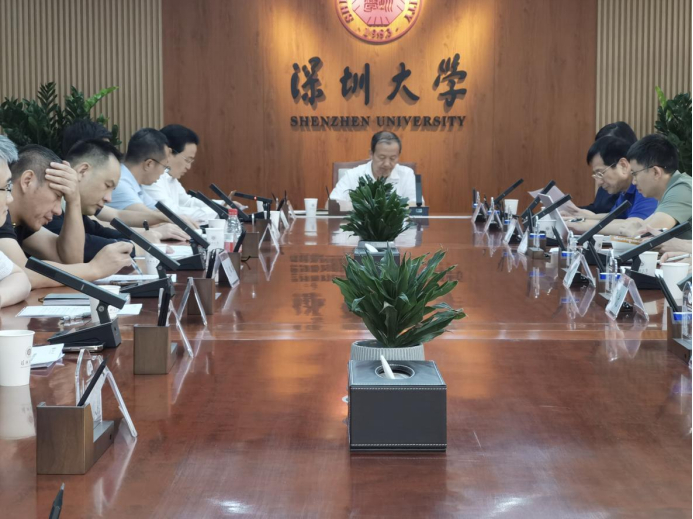On November 5, 2024, the Shenzhen University Liberal Arts Database Construction Committee convened a special meeting in Room 401, Huiyuan Building. Attendees included President Mao Junfa, Vice President Zhang Xiaohong, and representatives from the Department of Social Sciences, School of Government, School of Media and Communication, Law School, Faculty of Education, School of Fintech, Hong Kong and Macao Basic Law Research Center, China Special Economic Zone Research Center, Cultural Industry Research Institute, Technical Expert Committee, State-Owned Assets Department, Library, National Engineering Laboratory for Big Data, and Information Center. The meeting was chaired by Zeng Xianju, Director of the Department of Social Sciences.

The discussion centered on the rationale, plans, and applications for the Liberal Arts Database, focusing on two key issues: 1. Hardware placement solutions and data acquisition methods. 2. Progress on individual school databases and mechanisms for data co-construction and sharing.
President Mao emphasized that the database’s development should prioritize both hardware and data, with data quality as the core focus. He called for expanding data volume, improving data quality, and promoting data sharing to highlight Shenzhen University’s unique strengths. He described the project as an unprecedented milestone in the university’s liberal arts history, urging high-quality investment and pledging full institutional support.
The School of Government reported on the database’s progress, noting it will integrate surveys, literature, and case studies to empower research and teaching. Dean Yu Keping highlighted the growing emphasis on “New Liberal Arts”, with databases as their foundation. He advocated combining humanities and social sciences with AI and information technologies to broaden academic perspectives and drive new growth in liberal arts through technological advancements. He called for broad consultation to serve the entire university community and ensure the database’s success.
Representatives from other schools and experts shared updates on existing databases. The Cultural Industry Research Institute and China Special Economic Zone Research Center noted their established databases could integrate into the Liberal Arts Database, fostering disciplinary development. Experts raised various needs, including resource sharing, data security, and material acquisition. The Information Center and Library offered suggestions on hardware storage and compliant data use.
Vice President Zhang Xiaohong concluded the meeting, affirming the database’s significance as a milestone project. She urged committee members to follow the guiding questions of “why build, how to build, and how to use”, fostering collaboration and a university-wide approach. Under conditions of safety and compliance, the database should achieve professionalism, technical sophistication, innovation, openness, and security.
This meeting provided valuable practical insights for the Liberal Arts Database’s development. Next steps include focusing on hardware configuration, usage plans, and high-quality data acquisition to accelerate progress.
Layout: Sun Baohua
Initial Review: Lian Yue
Second Review: Hu Peixiaoyu
Final Review: Gu Zhijun

